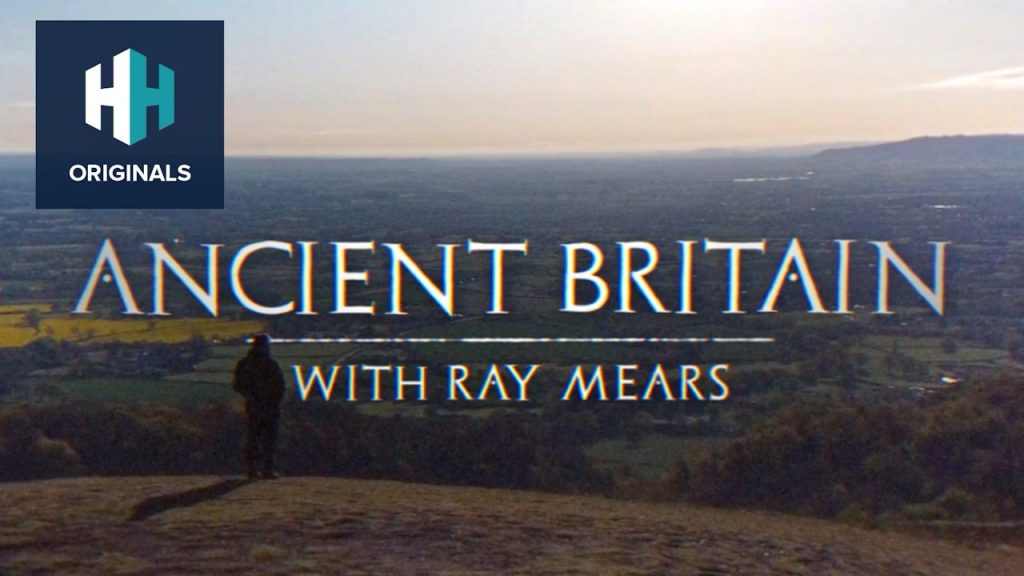

Wow! I love this. I stumbled upon it today. And I’ve watched three episodes in one sitting. I don’t know, for sure, but it appears that’s the whole lot?
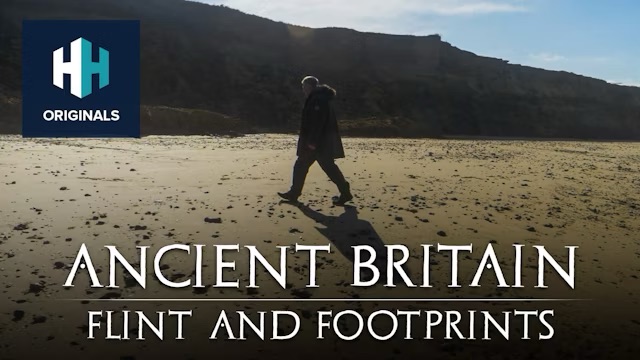
In the first episode he marches along Happisburgh beach in Norfolk, discusses ancient footprints (the earliest archaeological evidence of humans in British records, to date) with a local expert, and sets out an overall timeline.
It’s a little evolutionary tale in miniature. The finding, recording and synthesis of such evidence – e.g. the transience of rapid erosion on soft sediments vs the likelihood of near ‘accidental’ stumblings upon that archaeological evidence – make for a fascinating subject in themselves.
In each episode he makes something. In episode one he knaps flint, making an almond-shaped axe-head. Describing, as he does so, how these things also signal not just a new ‘technology’, but the advent of art; the pursuit of aesthetic beauty as well pure functionality.
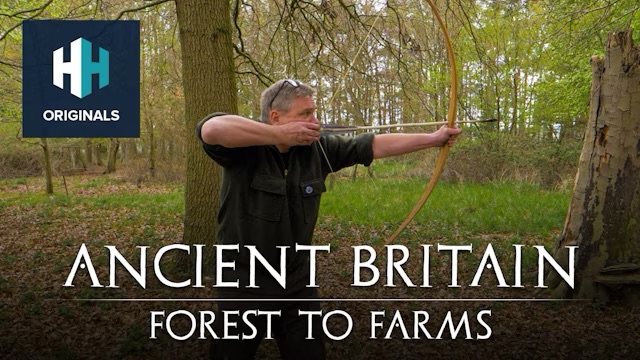
In the second episode Ray crafts a flint-tipped arrow, and we encounter the revolution that is farming. I want to make a bow like the one he’s using in the picture above.
One of the things that struck me most forcibly in this episode was his comment, whilst making the wooden shaft for his arrow, sat by a fire, about time. And how these elder days folk had a lot of it. For all our vaunted knowledge and tech, we – certainly personally speaking – never have enough time.
It’s ironic that the cumulative effect of all our technologies, at least as they manifest in such societies as ours, in contemporary England, rather than liberating us, seem to have made us more frantic. Such that nowadays almost nobody has time for anything meaningful, such as connecting with nature.
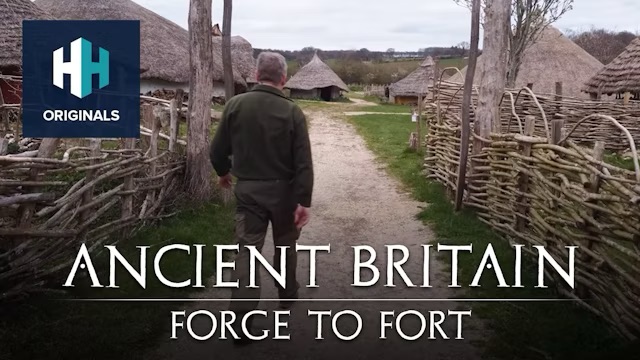
In episode three Mears covers sudden accelerations of technology, and corresponding increases in the complexity of society. Humanity in Britain has shifted from hunter gathering to the settled life of agriculture, and moved from the Stone to the Iron Age.
He observes that this shift, which enables more complex society and culture, wasn’t – from the point of view of the health of the individual – a step forward. But a step backwards. Early farmers had worse diets and suffered more disease and earlier deaths than their hunter-gatherer forbears.
He doesn’t examine that thread further, here. But it’s interesting to me, inasmuch as it shows that evolutionary development doesn’t necessarily equate with the idea of ‘progress’ as a path to perfection. Certainly not from the viewpoint of any given organism.
Whether we call it simply change, or the more freighted development, whilst evolutionary paths are necessarily constrained, they most definitely not developing according to human ideas of attaining perfection.
Fascinating stuff, in that old school BBC style, think Reith or Attenborough; intelligent, educational. Happy to take its time.
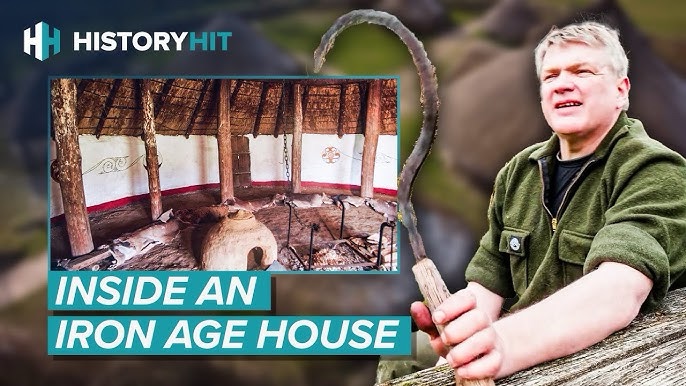
I’d love to learn more about foraging for wild food. For many reasons, including the infernal expense of food shopping! Here are some of the plants he talks about: Golden Saxifrage, the Poly Poly fern (Polystichum Polyblepharum), and the Linden or lime tree.
A great if rather scant series. Simple, modest, unpretentious. Not earth-shattering. But deeply fascinating. And conducive to promoting further fascination.
‘It’s so mysterious. I just wish we knew more,’ he says. Agreed!
